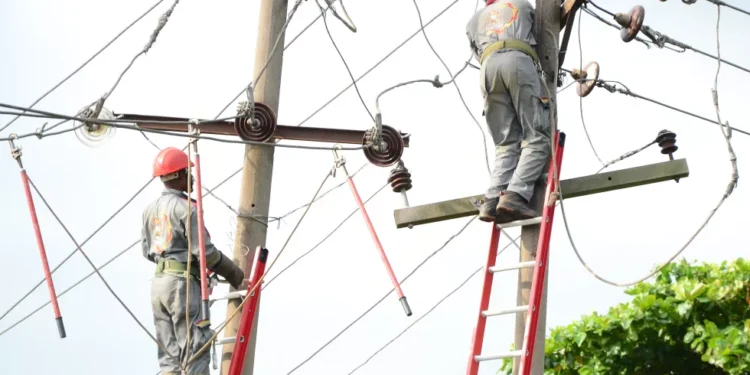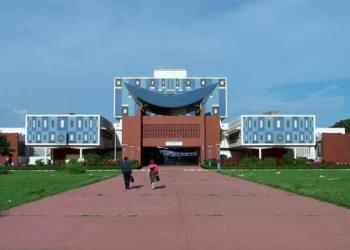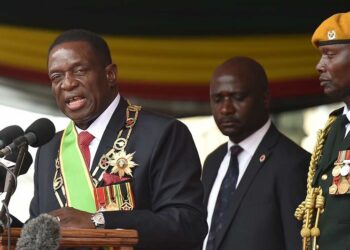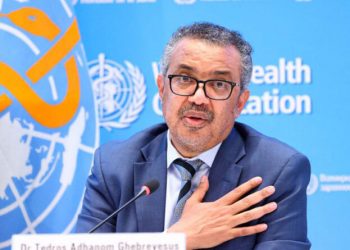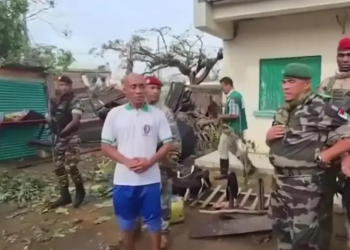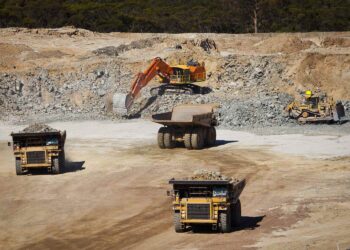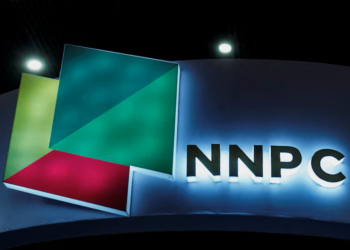Nigeria, a nation with a population exceeding 200 million, has long been plagued by insufficient power supply. This issue has forced the majority of its citizens to live with limited access to electricity, as efforts to revitalize the power sector by previous administrations have continuously faltered. Since January 2010, Nigeria has experienced over 222 instances of its national grid collapsing, despite the substantial financial investments made in the power sector each year.
Most recently, the country faced a series of total blackouts due to the national grid collapsing three times in a single week. This left the entire nation in darkness, with businesses bearing the brunt of the crisis and suffering significant economic and social consequences. The ongoing struggle to address Nigeria’s power supply issues highlights the urgent need for sustainable solutions to ensure reliable electricity for all citizens.
Nigeria’s Power Structure
The power structure in Nigeria is comprised of generating plants that produce electricity, a transmission system that carries electricity from the generating centers, and a distribution system that delivers electricity to final consumers after it is received from the transmission system. The Nigerian power sector is overseen by the state-owned Power Holding Company of Nigeria (PHCN), formerly known as the National Electric Power Authority (NEPA).
In March 2005, the Federal Government partially privatized the power sector when former President Olusegun Obasanjo signed a power sector reform bill into law. This allowed private companies to participate in electricity generation, transmission, and distribution. The government also encouraged foreign involvement in the electric power sector by commissioning independent power projects (IPPs) to generate electricity and sell it to PHCN.

By 2013, the Nigerian power sector was fully privatized under the administration of former President Goodluck Jonathan. This transfer of the power distribution and generation burden to private distribution companies (DisCos) and private generation companies (GenCos) was accompanied by the retention of some regulatory oversight by the Nigerian Electricity Regulatory Commission (NERC). In essence, the GenCos generate power and supply it to the national grid, while the Transmission Company of Nigeria (TCN) transmits the power from the grid to the DisCos for local distribution of electricity.
Why Does the National Grid Keep Collapsing?
The Nigerian national electricity grid, designed to operate through three phases—generation, transmission, and distribution—has experienced numerous collapses due to a range of factors. These include grid instability, aging electricity infrastructure, low water levels at hydropower plants, insufficient gas supply at gas power plants, poor utility performance, and theft/vandalism of grid equipment. At times, the grid is intentionally shut down for security and safety reasons or due to worker strikes.
In April 2024, Nofisat Ali, the executive director of the Independent System Operator (ISO) at the Transmission Company of Nigeria (TCN), informed a Senate committee that the persistent grid collapses were a result of issues involving all stakeholders in the power sector. Ali stated, “The causes of grid collapse in Nigeria are widespread, involving generation companies, transmission, and distribution.”
Additionally, Nigerian Minister of Power, Adebayo Adelabu, addressed journalists regarding a recent grid collapse, emphasizing the outdated infrastructure of the power grid as a significant factor. Adelabu explained, “The grid experienced a disturbance and was deliberately shut down due to an explosion at the Jebba plant. Prior to this, there was a disturbance four months ago, indicating ongoing management of the grid. The reality is that we have aging infrastructure, with a national grid of over 50 years old, transmission lines in disrepair, falling towers, substations, and transformers. The transformer that exploded at Jebba was 47 years old, and while efforts are being made to replace it, these changes cannot happen overnight.”
The Nigeria-Siemens Power Deal
In July 2019, Nigeria, under the administration of former President Buhari, entered into an electricity roadmap agreement with Siemens, a German-based power company. This agreement, known as the Nigerian Electrification Roadmap (NER) or the Presidential Power Initiative (PPI), includes technical and commercial proposals aimed at financing, implementing, and executing projects to revitalize the Nigerian power sector and address the country’s future electricity needs.
The NER was designed in three phases and was intended to be carried out over a six-year period, concluding in 2025. The first phase focused on implementing quick impact projects to improve the capacity of the existing grid system to utilize stranded generated power capacity, ultimately increasing operational power capacity from the current 5000 megawatts to 7000 megawatts by 2021. The second phase aimed to address distribution network constraints and expand the grid to maximize the use of current generation capacities, with a target of achieving a combined capacity of 11000 megawatts by 2023. The third phase involved constructing new generation systems while modernizing and expanding the national transmission and distribution systems to achieve an overall operational capacity of 25000 megawatts by 2025.
Regrettably, Nigeria was unable to meet the roadmap within the specified timeframe, as the first phase encountered setbacks due to the global effects of the COVID-19 pandemic. Consequently, the first phase of the project, originally scheduled for completion by 2021, was extended until May 2023, coinciding with the end of former President Buhari’s tenure. Reports indicated that the federal government had received approximately 80% of the equipment for the project by that time, which had been deployed to strategic cities to enhance power transmission capacity.
In December 2023, President Tinubu’s administration breathed new life into a once-failed project by reinvigorating the PPI agreement with Siemens. This agreement was redesigned to inject an additional 12,000 megawatts into the national grid, marking a significant step towards addressing Nigeria’s power challenges.
The Nigerian Minister of Power, Adebayo Adelabu, expressed his optimism about the renewed deal, stating, “This agreement focuses on comprehensive grid stabilization across the entire transmission grid in the Nigerian power sector. This initiative will undoubtedly enhance power supply in terms of reliability, functionality, and affordability in the years ahead.”
Adelabu went on to explain, “The original agreement was valued at $2.3 billion. However, to date, we have only spent approximately $60 million on the importation of 10 transformers and 10 power mobile substations from Siemens. These components have been successfully delivered, commissioned, and are currently being installed. The total cost incurred thus far is $60 million.”
This renewed commitment to improving Nigeria’s power infrastructure demonstrates a proactive approach to addressing the country’s energy needs and fostering economic growth.
The need for Renewable Energy Sources (REWs)
Nigeria primarily generates power through thermal and hydroelectric sources, boasting an installed capacity of approximately 12,522 megawatts. The country is a member of the Economic Community of West African States and the West African Power Pool (WAPP), a specialized agency of ECOWAS consisting of 14 countries. WAPP was established to enhance power generation and transmission infrastructures, as well as to facilitate power exchange among ECOWAS member states. Due to frequent power outages, hindering economic growth and development, the country has been actively exploring alternative power sources, as it has begun to shift its focus towards renewable energy sources like solar and hydropower to diversify its energy mix and reduce its carbon footprint.
Transitioning to renewable energy sources can significantly lower energy costs for commercial and industrial sectors while promoting environmental sustainability by reducing carbon emissions. Various countries worldwide, including China, Germany, India, Brazil, and the USA, have diversified into renewable and sustainable energy sources to meet their energy needs. In Africa, countries like South Africa, Ghana, and Cameroon have also embraced renewable energy sources.
The Nigerian government has also adopted renewable sources such as biomass and solar to generate electricity, primarily for rural and semi-urban areas lacking access to distribution companies. Since 2014, the federal government, through the Rural Electrification Agency, has been commissioning electrification projects using solar energy as the primary renewable electricity source. According to the agency’s impact report released in January 2019, over 99,450 connections were recorded in a 20-month period, with over $550 million sourced for investment in rural and market areas across the country.
The Nigerian government’s Renewable Energy Master Plan (REMP), launched in 2006, is focused on increasing the supply of renewable electricity—including wind, solar, biomass, and small hydropower—from 13% of total installed electricity generation capacity in 2015 to 23% by 2025 and 36% by 2030. The Renewable Energy Association of Nigeria has established a strong network of solar system installers nationwide to promote large-scale solar projects and facilitate access to financing.
International organizations have also expressed interest in supporting Nigeria’s transition towards renewable energy sources. For instance, the World Bank’s International Development Association provided $350 million for the Nigeria Electrification Project (NEP) to introduce mini-grid and off-grid solutions in areas without electricity access. Additionally, the African Development Bank (AfDB) contributed $200 million to the initiative, with expectations of leveraging an additional $410 million in private sector investments to create a thriving market for mini-grid and off-grid energy solutions.
In summary, meeting Nigeria’s electricity demand—crucial for the country’s development and prosperity—can be achieved through significant power generation from solar, wind turbines, and other renewable sources in conjunction with effective oversight of the ongoing Siemens project aimed at revitalizing the power sector.















































